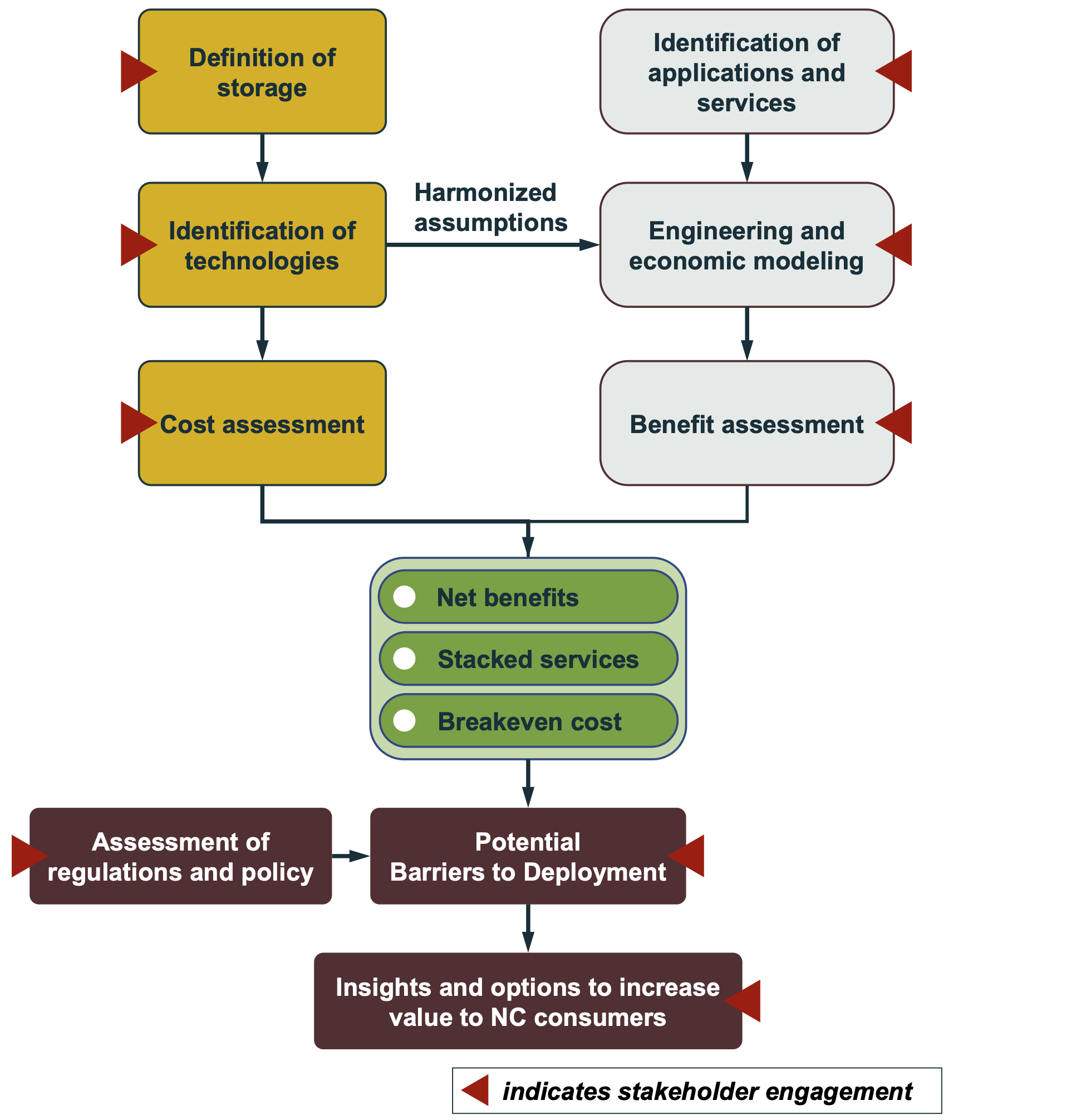A Proposed Energy Storage Study for North Carolina
Published in UNC Policy Collaboratory, 2017-2018 , 2017
North Carolina’s power sector faces a rapidly increasing penetration of renewable energy as well as economic and environmental pressures to decrease coal production. Energy storage may present an attractive solution to ensure reliable service, decrease costs to rate payers, and reduce the environmental impacts of electricity production. Given the complexity of grid operations, however, the impacts of using energy storage to achieve these goals should be rigorously evaluated. The NC General Assembly recently passed HB589, titled “Competitive Energy Solutions for NC,” and it was signed into law by Gov. Cooper in July 2017. Part XII, Section 12 requires the North Carolina Policy Collaboratory to undertake a study on energy storage technology and its potential benefit to NC consumers. This memo outlines our approach to the study. Our objective is to generate an analysis that provides clear policy guidance to the NC General Assembly, NC Utilities Commission, and the NC Energy Policy Council, informed by stakeholder engagement and the application of open and transparent modeling tools. Link to NC Energy Storage Study Website
DeCarolis, J.F. (PI), Johnson, J. (co-PI), de Queiroz, A.R. (co-PI), Baran, M. (co-PI), Lu, N. (co-PI), Lubkeman, D. (co-PI), Tang, W. (co-PI), Galik, C. (co-PI), Fell, H. (co-PI), Kalland, S. (co-PI), Proudlove, A. (co-PI), Panzarella, I (co-PI), A Proposed Energy Storage Study for North Carolina, Funded by the UNC Policy Collaboratory, 2017-2018

Work flow diagram explaining our approach to the analysis. On the left, our definition of storage led to the identification of key technologies and a cross-cutting assessment of technology- specific costs. We separately identified a series of grid services and applications where storage can plan a role, and conducted a series of application-specific analyses to assess benefit. Costs and benefits were used to compute net benefits, break-even costs, and identify potential stacked services. Along with the policy assessment, we use the benefit-cost analysis to assess the value of storage to NC consumers.
